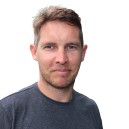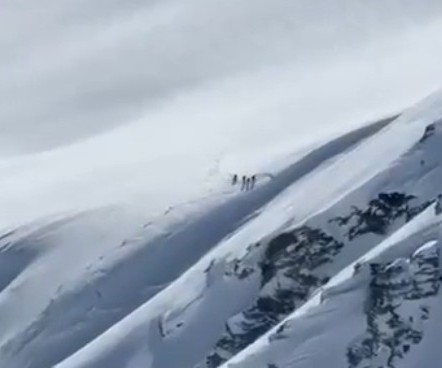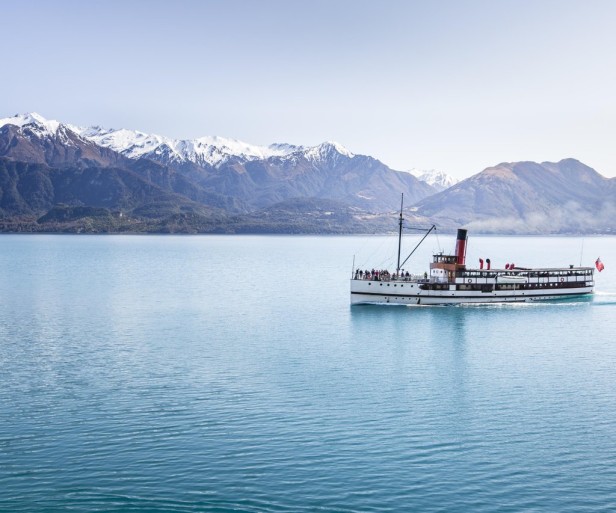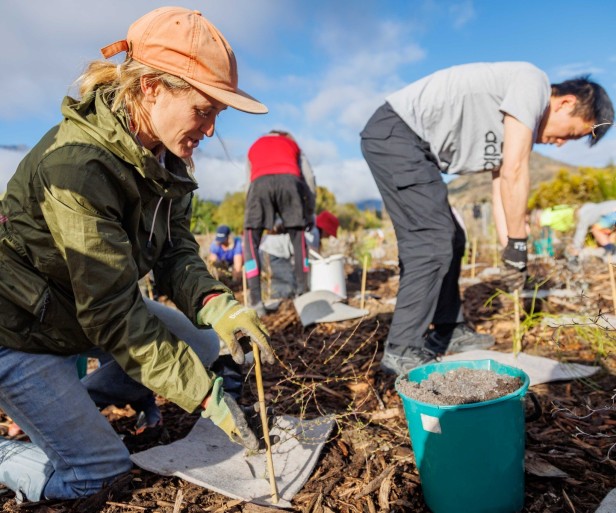Minister eyes tourism growth
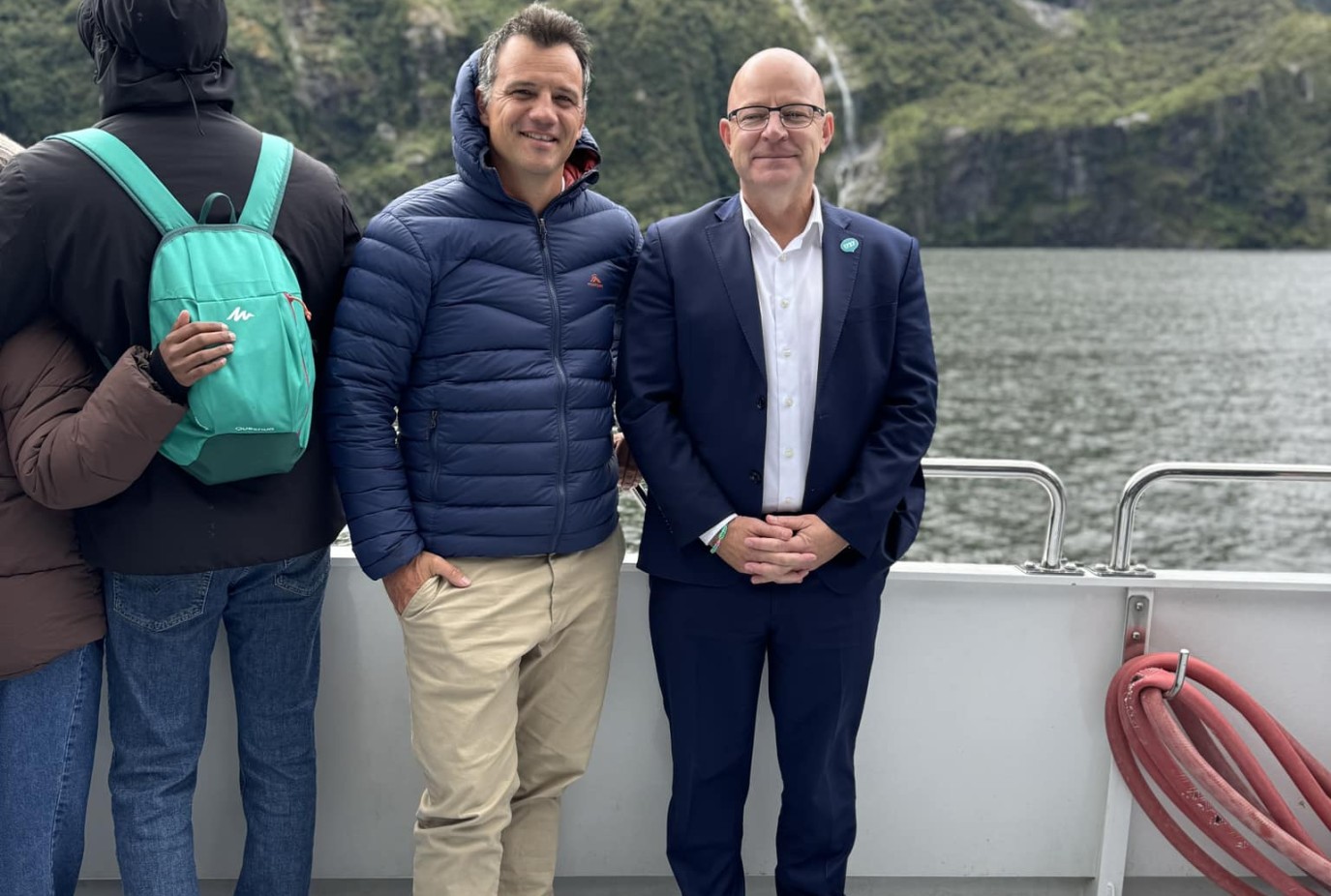
New Tourism and Hospitality Minister Matt Doocey says he has a clear message for tourist towns, businesses and organisations: “We want to grow tourism ... but with social licence”.
Doocey made his second visit to Queenstown Lakes last week since being appointed to the portfolio in November, following the General Election.
He also visited Milford with Southland and Queenstown MP Joseph Mooney, where he cast an analytical eye over the $15 million Milford Opportunities Project.
In Queenstown, Doocey held “free and frank” roundtable discussions with tourism operators, including RealNZ, as well as Destination Queenstown.
“My message to tourism organisations is we want to support you to grow but with social licence. We want communities to be part of that discussion about how we make sustainable tourism in the different regions around New Zealand.”
Doocey says it’s obvious that in places of high tourism numbers but a low-rating base, there is pressure on communities, infrastructure and the environment.
He’s open to discussions about a local visitor levy, which Queenstown Lakes District Council made a major push for under Mayor Jim Boult.
“We have the International Visitor Levy, which is taken at the border ... but people have raised with me a number of potential funding mechanisms.
“Specifically in Queenstown, there’s discussion about how they create their own revenue stream from tourism ... that collects the revenue from the point of activity and returns it back to that point of activity.
“I would say I’m open to conversations at the moment.”
The International Visitor Levy, $35 collected at the border, generates about $80-90 million a year, which is split between tourism and conservation nationally.
But a local bed tax could raise more than $20 million per year for Queenstown Lakes alone. Successive Governments have been reluctant to hand over such taxation powers to local government, however, with the Stewart Island visitor levy the one notable exception.
One project sure to grow tourism would be Christchurch International Airport Ltd’s (CIAL) plans for a wide-bodied jet capable airport at Tarras, which could serve four million passengers per year by 2050.
Doocey says that will be a “commercial decision” for CIAL but believes communities also need to be part of that decision.
“I’m not here to tell any region specifically how much they need to grow by in tourism. I think they need to understand what their social licence is within the communities, what are the tourism opportunities they offer international visitors as well as domestic, and also what their capacity is for hosting visitors because ultimately, what we want is a quality visitor experience.”
The Coalition Government has paused work on the Industry Transformation Plans (ITPs), a Covid-inspired Labour reset.
Doocey says that doesn’t mean Destination Queenstown and Lake Wānaka Tourism’s joint ‘Carbon Zero 2030’ destination management plan is dead in the water. He says he won’t be a Minister that issues “top down directives” and devolution and regionalisation is needed to enable local communities to have a say.
“Some have raised with me at the roundtables about the desire for funding around destination management plans, I’m more than open to discuss that and see what that looks like.
“I think it’s really drilling down specifically into what the destination management plans are trying to achieve and the support they might need to activate them. Part of that might be a private sector investment, or maybe it is around what National stood for at the election, around city and regional deals.”
It’s the same approach for the Milford Opportunities Project, which aims to help Milford Sound and Milford Road. In 2019, 882,000 people visited Milford Sound, and more than 80% were international tourists.
Doocey, speaking to the Southland App, questioned not only its timeframe and $12-13m price tag but also some of its suggestions and directions.
“I think at times the direction can be a bit incoherent. We need to actually be very clear. What is the plan trying to achieve.”
He said he wouldn’t support the suggestion to ban cruise boats or fixed wing planes in Milford, which is news that will delight some of Queenstown’s flightseeing operators.
And while recognising there were constraints with the number of current carparks in Milford Sound, Doocey said that people should still be given a choice about how to get there.
Finally, he said the Coalition Government won’t make “value laden judgements” about tourists - backpackers are as welcome as well-heeled golfers.
“I didn’t agree with the demeaning comments [made by former Labour Tourism Minister Stuart Nash] on the backpacker market,” he says.
He highlights Patrick Quayle, vice president of United Airlines, as an example.
“He talked about first falling in love with New Zealand as a backpacker. Now he comes back as a leader of the largest airline in the world, facilitating air routes into the country. So, I just think we need to be aware that our tourists can bring different value in different parts of the life. We should welcome all visitors to New Zealand.”

